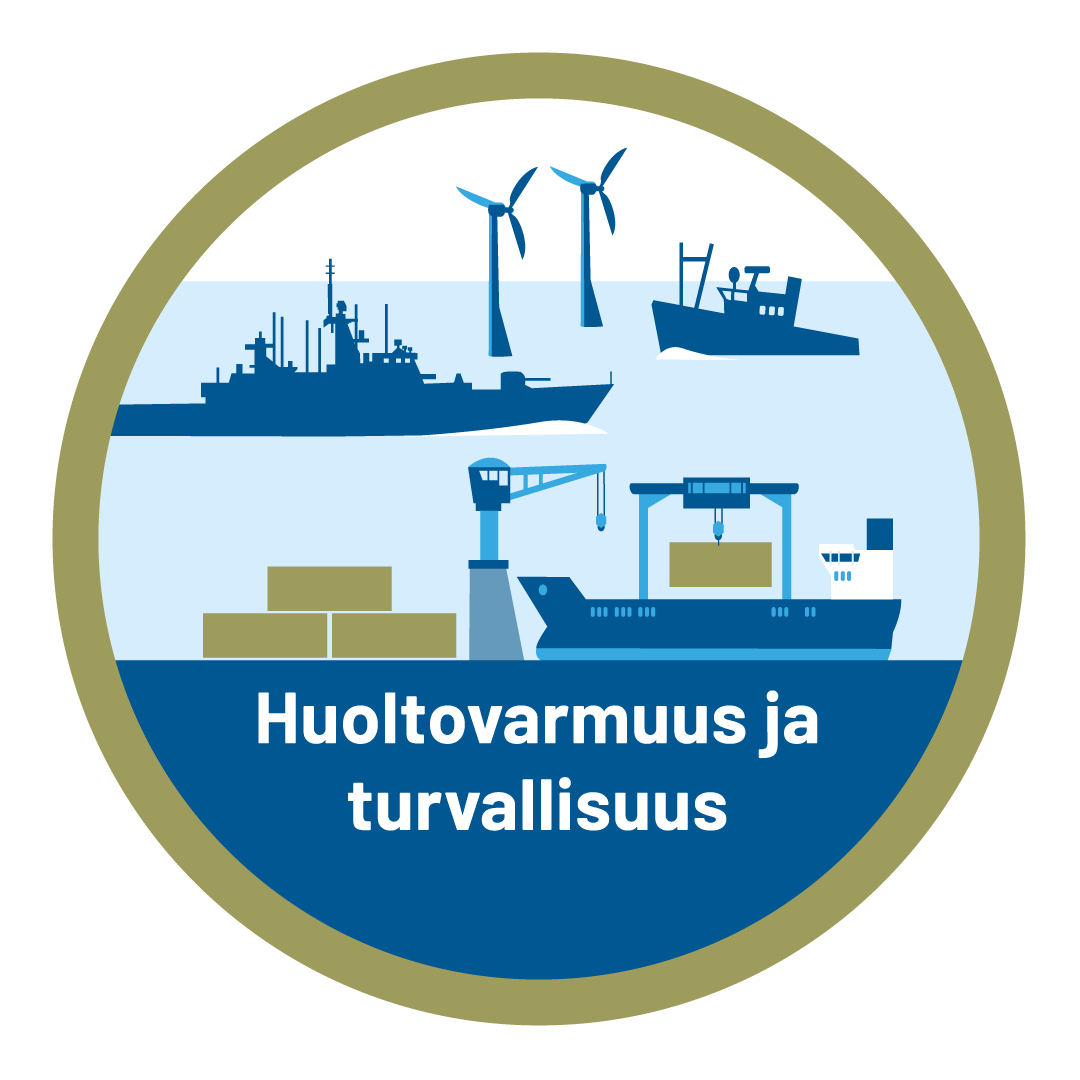Maritime security and resilience under review – a new study outlines three future scenarios for the Baltic Sea
The Finnish Maritime Spatial Planning (MSP) Coordination Group has commissioned, and Capful has produced, a newly published study examining the critical role of maritime spatial planning in supporting Finland’s security of supply and overall societal resilience. The report provides an up-to-date overview of the security situation in the Baltic Sea, outlines three alternative future scenarios amid global uncertainty, and presents a vision for how we can collectively strengthen comprehensive security in Finland’s marine areas.
Finland is, in practice, an island: our national resilience and the functioning of society rely heavily on maritime transport. But what happens if our sea connections are disrupted? How can we prepare for an unstable future in the Baltic Sea region? And what role can maritime sectors play in supporting our self-sufficiency?
In the first scenario, “The whirlpool of great power struggle” geopolitical tensions escalate in the Baltic Sea as major power struggles increase instability and heighten security risks.
The second scenario, “The eye of the storm” envisions a situation where military operations in the southern Baltic Sea jeopardize maritime connectivity across the entire region.
The third scenario, “The winds of pacification” looks toward a future where geopolitical tensions ease, and economic, political, and defense cooperation strengthens through NATO and the EU.
Together, these scenarios illustrate how the future of the Baltic Sea is marked by uncertainty, as climate change, geopolitical tensions, and environmental threats create new challenges for maritime sectors. The study points out major risks but shows that with cooperation, solutions are within reach.
“Strengthening self-sufficiency and the vitality of coastal regions, enhancing inter-agency cooperation, and making better use of digital tools are concrete ways to improve stability in our marine areas,” explains Timo Rantanen, planner of the Finnish MSP cooperation.
The comprehensive security vision outlined in the study has been developed jointly with a wide range of stakeholders, with maritime spatial planning playing a key role in its implementation. Through maritime spatial planning, different interests are brought together, knowledge is shared, risks are anticipated, and the sustainable and safe use of marine areas is promoted. However, in ensuring security, the marine environment must not be forgotten. A healthy marine ecosystem and preparedness for incidents such as oil spills are essential parts of national security.
“A safe and predictable operating environment at sea and along the coast can only be built through broad collaboration among authorities, industries, researchers, and civil society. The future cannot be predicted—it must be created together,” says Essi Kärpijoki, Coordinator of Finnish MSP Cooperation.







